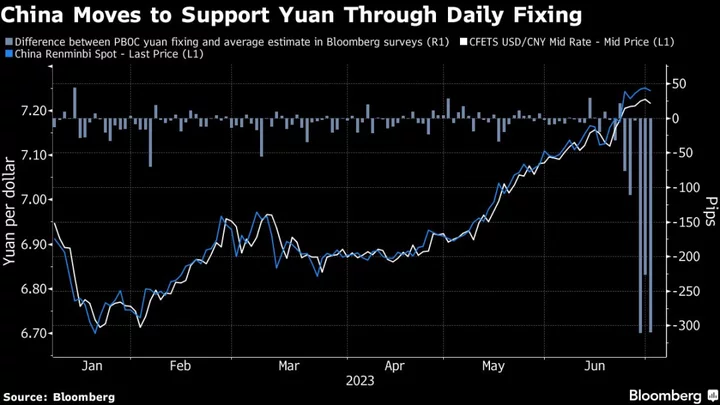By Fergal Smith
TORONTO Canada's main stock index will rally less than previously expected in 2023 as higher borrowing costs cool the domestic economy and signs China's recovery is slowing reduce prospects for its resource shares, a Reuters poll found.
The median prediction of 22 portfolio managers and strategists in the May 10-23 poll was for the S&P/TSX Composite Index to advance 4.2% to 21,000 by the end of the year, compared with 21,500 expected in the previous poll in February.
It was then expected to climb to 21,944 by end-2024, stopping short of the record closing high it set in March 2022 of 22,087.22.
"The Canadian economy is very sensitive to interest rates and what appears to be another slowdown taking place in China," said Matt Skipp, president of SW8 Asset Management. "The Chinese recovery looks anemic and that's a headwind for Canada and its resource-centric stock market."
China is a major consumer of commodities. Its industrial output and retail sales data for April undershot forecasts, suggesting the economy has been unable to sustain the momentum it gained following its reopening from the COVID-19 pandemic.
The energy and materials sectors combined account for roughly 30% of the Toronto market's weighting, while financials account for an additional 28%.
A pullback in oil prices has weighed on energy shares in recent months, while financials have been buffeted by stress in the U.S. regional banking sector.
The TSX has advanced 3.9% since the start of the year, trailing the 8% gain for U.S. benchmark the S&P 500.
Four of nine analysts who answered an additional question said a correction, or a decline of at least 10%, would be the dominant trend for the TSX over the coming three months.
"We anticipate earnings coming under more pressure in the coming quarter and more volatility in the market place," said Ben Jang, a portfolio manager at Nicola Wealth.
Meanwhile, recent data showed a surprise increase in Canada's annual inflation rate in April, leading to investors betting the Bank of Canada will resume interest rate hikes. The central bank's policy rate has been on hold at a 15-year high of 4.50% since January.
Canada's economy is particularly sensitive to higher interest rates after households borrowed heavily during the pandemic to participate in a hot housing market.
"Our baseline forecast still incorporates a significant slowdown of the global economy and a recession in Canada in the second half of 2023," said Lorenzo Tessier Moreau, a senior economist at Desjardins.
(Other stories from the Reuters Q2 global stock markets poll package:)
(Reporting by Fergal Smith; Editing by Simon Cameron-Moore)









